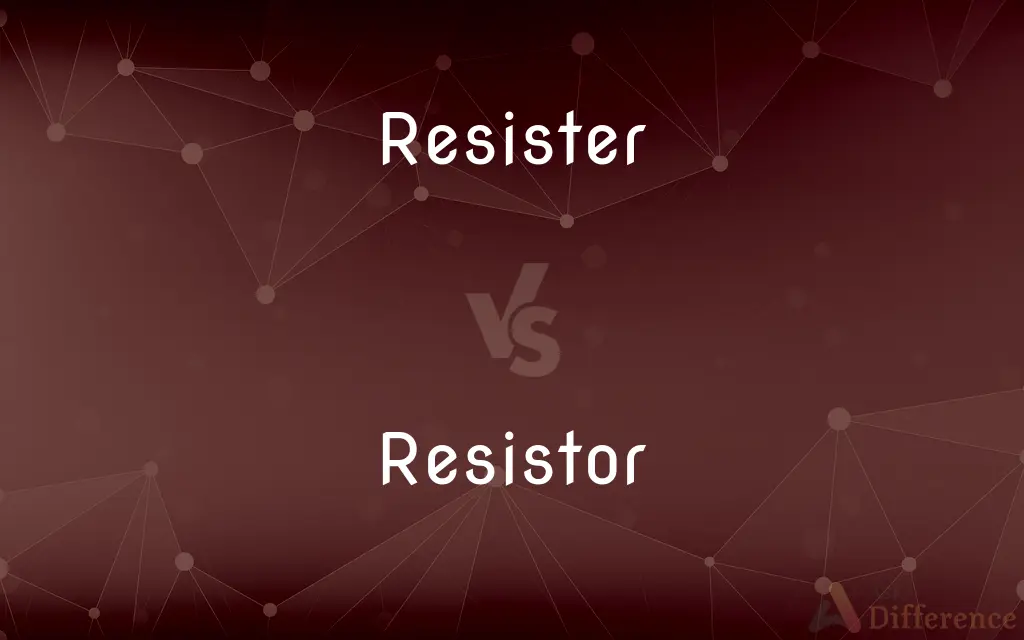Resister vs. Resistor — What's the Difference?

Difference Between Resister and Resistor
ADVERTISEMENT
Compare with Definitions
Resister
To take action in opposition to; try to eliminate, reduce, or stop
Resisted the effort to close the school.
Resistor
A resistor is a passive two-terminal electrical component that implements electrical resistance as a circuit element. In electronic circuits, resistors are used to reduce current flow, adjust signal levels, to divide voltages, bias active elements, and terminate transmission lines, among other uses.
Resister
To take action to defeat or thwart (an invading or occupying military force).
Resistor
A device used to control current in an electric circuit by providing resistance.
Resister
To remain unaltered, undamaged, or unaffected by; withstand
A crank that resists torque.
A material that resists solar degradation.
ADVERTISEMENT
Resistor
One who resists, especially a person who fights against an occupying army.
Resister
To provide resistance to (an electrical current).
Resistor
(electronics) An electric component that transmits current in direct proportion to the voltage across it.
Resister
To keep from giving in to, engaging in, or enjoying
Resisted pressure to conform.
Resisted investing in real estate.
Resistor
An electrical device that resists the flow of electrical current
Resister
To offer resistance.
Resister
A substance that can cover and protect a surface, as from corrosion.
Resister
(Sense 1 only)
Resister
One who resists.
Resister
Someone who systematically obstructs some action that others want to take
Resister
Someone who offers opposition
Share Your Discovery

Previous Comparison
Misregard vs. Neglect
Next Comparison
Calipers vs. Calibre














































